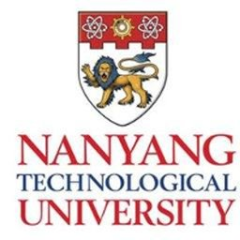Research Fellow [LKCMedicine]
Nanyang Technological University
Date: 1 week ago
Area: Novena, Central
Contract type: Full time

The Lee Kong Chian School of Medicine (LKCMedicine) trains doctors who put patients at the centre of their exemplary care. The School, which offers both undergraduate and graduate programmes, is named after local philanthropist Tan Sri Dato Lee Kong Chian. Established in 2010 by Nanyang Technological University, Singapore, in partnership with Imperial College London, LKCMedicine aims to be a model for innovative medical education and a centre for transformative research. The School’s primary clinical partner is the National Healthcare Group, a leader in public healthcare recognised for the quality of its medical expertise, facilities and teaching
The Neuroscience and the Mental Health Program is one of the leading research programs in the medical school. The key objective is to conduct both basic and translational research in neuroscience to better understand brain function and the etiology of neurological disorders and diseases
We are a molecular neurobiology laboratory interested in studying how the brain encodes long term memories. Using a range of molecular and cellular techniques, we elucidate how stimulated cells, at the level of a single cell and also as part of a larger network, undergo persistent changes that ultimately lead to experience-dependent rewiring of the brain. To that end, our lab uses both wild type and dementia mouse models to study the basic biology of memory, and how deficits in cellular mechanisms can lead to memory disorders. Our lab uses a multidisciplinary approach to answer some of these outstanding questions in different neuronal preparations. Among the techniques we regularly employ include live cell microscopy, protein biochemistry, multi-omics studies using various sequencing platforms, neuronal physiology, etc
The Ch’ng lab is a molecular neurobiology laboratory interested in studying how the brain encodes long term memories. Using a range of molecular and cellular techniques, we elucidate how stimulated cells, at the level of a single cell and also as part of a larger network, undergo persistent changes that ultimately lead to experience-dependent rewiring of the brain. In parallel to understanding how memories are formed, we are also keen to elucidate the molecular dysfunction that accompanies diseases or disorders linked to memory loss
Key Responsibilites:
- Experience working in a wet lab, specifically in basic cell and molecular biology techniques (e.g. cloning, tissue culture etc.) is a prerequisite. Candidates with specific skill set (proteomics, transcriptomics, electrophysiology, etc) should clearly state that in the CV.
- Experience or be willing to work with the mouse as an animal model
- Conducting molecular neuroscience research using the mouse model in understanding the basis of long-term memory formation and the disorders associated with memory loss.
- Experience with mouse seizure models will be preferable
- A Master’s or PhD degrees is required for either an associate or postdoctoral position in neuroscience or molecular biology
- At least 3 years of relevant experience working in a laboratory setting with hands-on experience working in the field of neuroscience.
- Familiarity with using optical instruments including dissection and confocal microscopes.
- Good written and oral communication skills in English.
- Good interpersonal skills and able to work well with others
- Self motivated
See more jobs in Novena